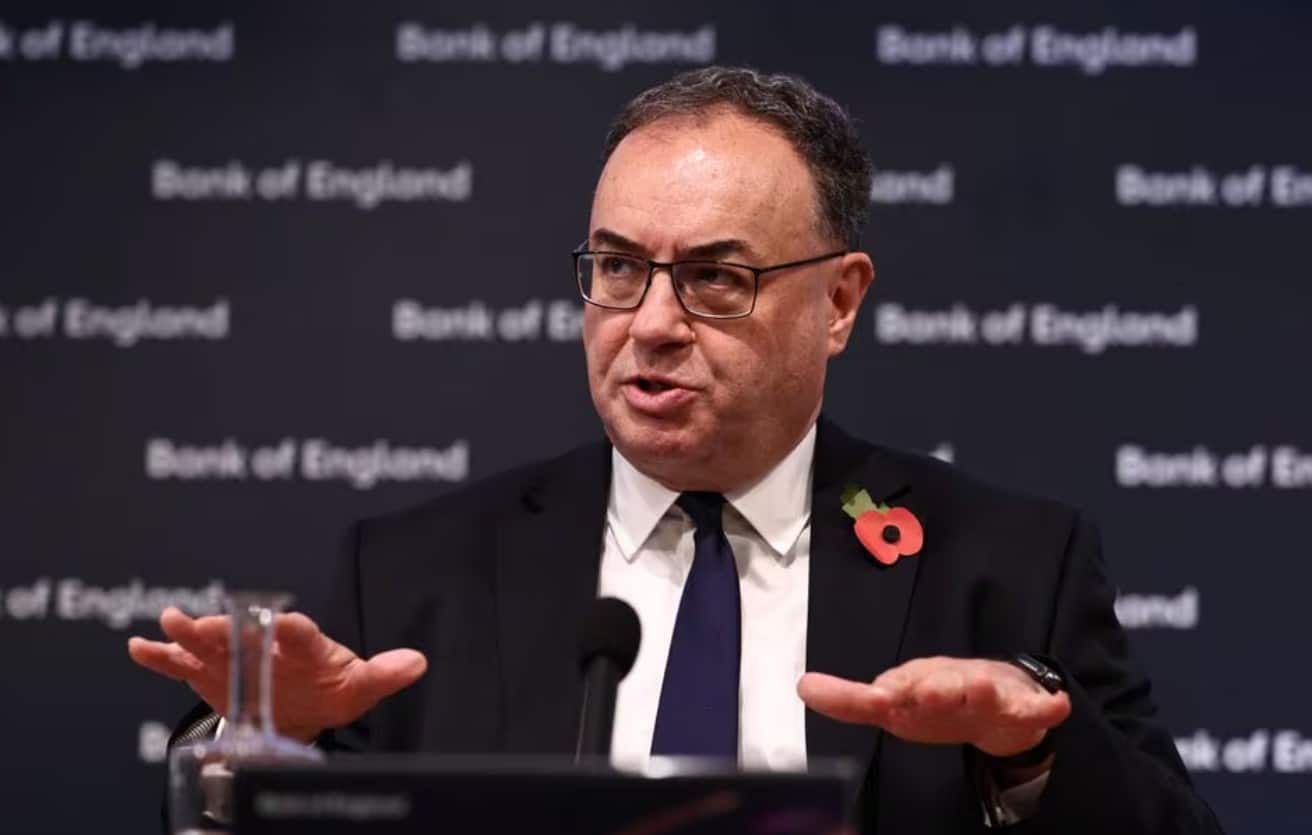Bank of England Governor Andrew Bailey on Tuesday highlighted Britain’s softening labour market and said rising uncertainty in the global economy had “definitely” hurt economic growth and investment intentions.
In an interview with CNBC, Bailey said a key question for the BoE was how much the weakening of the labour market and the economy would help to reduce inflation pressure.
Bailey mostly emphasised the downward risks to Britain’s economy rather than the threat of inflation – although he said the BoE was watching “very carefully” for signs that recent price increases might turn out more persistent.
Short-dated British government bond yields touched an almost two-month low after Bailey spoke.
“That increase in uncertainty and predictability is definitely coming through in terms of activity and growth,” Bailey said in an interview with CNBC from a central bank summit in Sintra, Portugal.
“When I go around the country talking to businesses, which I do a lot, what they tell me is that they are putting off investment decisions.”
He repeated his view that interest rates are likely to fall gradually. On the outcome of the BoE’s next meeting in August, Bailey said: “We’ll see.”
“I do see some underlying weakening, particularly in the labour market – and the labour market is softening,” Bailey added.
Asked about the steepening of Britain’s government bond yield curve, Bailey said it likely reflected uncertainty in the global economy. There was no question over the viability of the stock of debt, Bailey said.
He described the next annual decision over the size of the BoE’s quantitative tightening process as “live”.
In June the BoE held interest rates steady in a two-way split vote. It said it is focusing on inflation risks from a weaker jobs market and from higher energy prices due to the conflict in the Middle East.
Investors are betting on the BoE cutting rates in two further quarter-point moves to 3.75 per cent by the end of the year.






Click here to change your cookie preferences